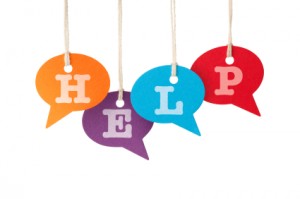 We are taught at a very early stage in life to be quiet and listen. In contrast to the enthusiastic encouragement to speak those first words, once spoken we are then told that we need hush and just listen. It’s reinforced by our parents, family members, teachers, friends, bosses, partners, colleagues and others. The mixed message has good intent. Listening is core to our survival and the way that we learn.
We are taught at a very early stage in life to be quiet and listen. In contrast to the enthusiastic encouragement to speak those first words, once spoken we are then told that we need hush and just listen. It’s reinforced by our parents, family members, teachers, friends, bosses, partners, colleagues and others. The mixed message has good intent. Listening is core to our survival and the way that we learn.
Listen: to give attention with the ear; attend closely for the purpose of hearing; give ear.
So why is listening so difficult? We have ears and it appears obvious that we should easily be able to use this amazing gift. Listening should be inherent; yet, it is considered an acquired skill – a very basic and important communication skill that requires tremendous discipline and continuous practice.
Listening Skills: The ability to pay attention to and effectively interpret what other people are saying.
The challenge to being a good listener is that we have competing senses, active brains and a world filled with an overwhelming amount of distractions. The Internet and multitudes of devices have not helped in our degradation in listening skills. We also are challenged with the threat that “success” demands we always speak up, which comes in direct conflict with listening. If we are thinking and speaking, we probably are not listening.
How does listening impact business? Listening is by far the most critical communication skill that contributes to success in business and life. Listening is a particular skill that requires development, nurturing and investment by the company and leadership.
“If you aren’t listening, you are missing out.” Richard Branson
Beyond the standard people requirements of requiring good listening skills to do your job, listening is a core function of marketing in business.
Listening is required in every role; however, marketing serves the purpose to be the “chief listener” within the organization. Organizations should mandate marketing be the “listening post” for the organization.
Why marketing? Listening impacts the customer experience, how products are sold, what products go-to-market, customer satisfaction, brand loyalty, retention and positioning of value-added services, to name a few. All of this requires listening to start the process and it should be done through marketing’s participation.
Marketing should act as the gatherer, interpreter and reporter of information and data that results from listening.
Everything about the business starts with listening. The information gathered through listening needs to inform business plans and strategy. All marketing strategies should be defined by what is learned by listening. Assumptions are risky and expensive. As we celebrate heroic unicorns that went to market on a “gut feel,” there are countless examples of failed launches, campaigns and businesses that resulted from not listening first.
Listening is the most important skill for any marketer. Marketers are constantly challenged to cut through the noise to reach their audience. Listening requires concentration, focus and determination. Poor listening skills often results in misunderstandings and ineffective messaging, which can frustrate and annoy the recipient. Worse, it can result in lost revenues and customers. In other words, failure in marketing.
As a marketer, what does it mean to really listen?
L = Learn: Top marketers will use every opportunity to learn from customers, prospects, employees, and partners about what is most important to them. Listen to learn.
I = Identify: Brilliant marketers use listening skills to identify the buying signals, values and goals of their target audiences in order to create informed and personalized conversations that produce results. Listen to identify.
S = Study: Smart marketers will study the evidence obtained by listening to align with data and other marketing tools in order to better understand habits, trends, opportunities and demands from their stakeholders. It will also validate or negate assumptions. Listen and then study.
T = Team Up with Sales: Wise marketers will not let sales and marketing function separately. They will team up with their sales and business development professionals to go on prospect calls, sit in on client engagements, attend events together, participate in regular sales meetings to best know how sales is selling. It is the only way to truly support sales and without sales, there is no need for marketing. Listen to sales.
E = Engage: Shrewd marketers will engage all stakeholders at every opportunity to set up times, places, and occasions for listening. This includes participating in social listening, going to events to listen to experts, soliciting input and continuous feedback, listening to customer stories to replicate success and listening to the voices that have influence on your brand. Listen by engaging.
N = Nurture: Resourceful marketers build meaningful relationships by listening to their market stakeholders and then using what is learned to nurture and foster those relationships with that information to validate their needs, ultimately creating sustainable value for the buyer and seller. Listen to nurture.
Marketing is responsible for sending clear, concise and effective communications. The only way to begin this process is to listen to everyone that has a stake in that message, internally and externally. This includes past, present and future customers, employees, partners, shareholders and investors, suppliers, community members and regulators. They all have a stake in a company’s success and they need someone listening to their interests and needs.
A marketer has many tools to utilize as a listening post. This includes social channels, digital media platforms, websites and content distribution forums, direct mail, emails, phone, survey and feedback tools, martech, thought leadership and customer events, meetings and onsite visits.
Listening impacts growth. It is fundamental to how companies grow globally. The first step toward entering new markets is to listen to the target market to understand the cultural differences and required market nuances that will meet the demands for your good and services. Listening starts locally, in order to grow globally. Utilize resources in local markets to listen, test and create marketing content and messages that will reach your intended audience.
In a recent sales and marketing study by Altify, they found that one-third of marketers admitted that their team does not understand the company’s customers. My advice, start listening!
Jamie Glass, CMO + President of Artful Thinkers, a sales and marketing consulting company.
EXTRA: How do you rate yourself as a listener? Here is a quick quiz that can help you assess your listening skills. This is not an endorsement of this quiz or do I have any affiliation, I believe it is easy and provides interesting insights.




You must be logged in to post a comment.